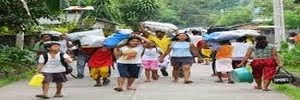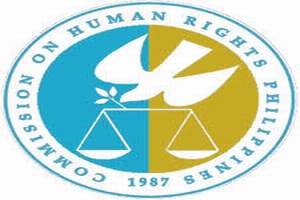From the Website of GPH - Government of the Philippines
Speech of President Aquino at the luncheon with the Korean business community, October 18, 2013
Speech
of
His Excellency Benigno S. Aquino III
President of the Philippines
At the luncheon with the Korean business community
[Delivered in Seoul, Republic of Korea, on October 18, 2013]
A very pleasant day to one and all.
I thank the Chairman of the
Korea International Trade Association, or KITA, for his warm welcome. If
I may share with you, I have always found it apt that one of your
country’s largest business organizations is called “KITA,” because in
our country, the word “KITA” means “profit.” I am convinced this is an
auspicious sign for our gathering today—hopefully, all of us will profit
from today’s interaction, especially after you consider investing in
the Philippines.
The promise of the Philippines
as an investment destination goes far beyond linguistic coincidence.
Since my administration took office in July of 2010, my country has seen
a large-scale turnaround in its fortunes—from being called the Sick Man
of Asia, to being referred to as the New Asian Tiger, or as Asia’s
Bright Spot. This drastic transformation is anchored on a simple
idea—the same idea that our people voted for in the 2010 national
elections: If we eliminate corruption, we can end poverty.
The causality between good
governance and good economics is precisely what we have taken to heart
and practiced these past three years. Perhaps it would be best to relate
an example that illustrates the extent of my country’s transformation.
In the Philippines, we have what is called the National Food Authority,
or NFA, which is supposed to stabilize the supply and price of rice. My
predecessor came in with the NFA at a debt for around 12 billion pesos,
which going by today’s exchange rate would be around 280 million
dollars. By the time she handed government over to me nine and a half
years later, this debt has grown to 177 billion pesos—today, a
staggering 4.12 billion dollars. How did this happen? My predecessor had
us believe that the country needed to import 1.3 million metric tons of
rice every year. In 2010 alone, to address this, they allowed the
importation of 2.5 million metric tons, and actually imported two
million metric tons of rice—grossly in excess of what was needed,
overpriced, and finally with many sacks of rice ending up rotting
unconsumed in warehouses.
Imagine: A lot of our ASEAN
neighbors send, and continue to send, their students to our universities
and research institutes to learn about the best practices in
agriculture. They then grew their own agricultural sectors so much so
that up to a few years ago, we wound up importing our rice or our rice
needs from them.
We have since refocused our
energies into improving our agriculture sector. Three years into our
term, we are almost 100 percent rice self sufficient. Our farmers now
grow enough rice to feed the nation—this, after productivity was
incentivized, infrastructure was built, and funds were channelled into
endeavors that actually had positive impact, instead of merely
benefiting those who had the connections to secure importation
contracts.
This is just one example of
the change we have established in the Philippines. On top of our
ever-intensifying battle to clean up the system and hold erring public
officials to account, we continue to do the day-to-day work of making
government work for everyone.
Successful businesses are
adept at managing commercial risk. Corruption, however, is an
unforeseeable and therefore unmanageable variable. Thus, to consistently
grow an economy, and for it to reach its fullest potential, the
uncertainties that become avenues for corruption must be eliminated. We
see reducing red tape and fixing a cumbersome bureaucracy as the
embodiment of this belief. In the past, businesses seeking to set up
shop in my country would have to go to so many offices, file endless
forms that they would then follow up with countless bureaucrats,
exposing them to greater risk from unscrupulous individuals. To solve
this, amongst the steps, we put up the Philippine Business Registry—a
one-stop-shop for the essential documents for businesses. This
significantly reduces both the time needed to put up businesses, and the
risks from corruption that investors are exposed to.
Our National Budget has also
been a focal point of reform. Like all of you, we endeavored to spend
our resources more wisely. Our zero-based budgeting principle reviewed
all government programs; and we asked for a sound rationale and the
capacity to deliver tangible results. Those that did not meet this
criteria were eliminated so that government resources could then be put
where they will have the most impact on our citizens: in education,
health, and social services.
For example, we inherited a
backlog of 66,800 classrooms; this year, we expect to close this gap. We
are even in a position to start building the necessary classrooms as we
move from a ten-year primary education cycle, to one of twelve years.
We have likewise expanded coverage of our national health insurance
program—we came in with around 66 percent of our population enrolled;
the number now hovers around 84 percent, with most of those left being
members of the informal sector or those living in geographically
isolated areas. One of our flagship programs, called the conditional
cash transfer program, provides cash incentives to poor families as long
as certain conditions are met—the primary condition being to keep their
children in school. From 800,000 families when we stepped in, now,
almost four million families are being given the opportunity to improve
their lives because of this program. All these, we did without raising
taxes.
The whole spectrum of our
governance efforts—be it investing in human capital, reforming the
system, or going after crooks—seeks to empower our citizens so that
growth is not limited to a privileged few, but is instead as inclusive
as possible, where everybody will be given the opportunity to improve
their lot in life. Our goal: To make every citizen active, productive
contributors to the economy who can fulfill their duties to
nation-building, even as they pursue their individual dreams of a
dignified life.
The international community
has taken note of our transformation. The World Economic Forum, for
example, has bumped our country up 26 places in its yearly
competitiveness rankings over the course of three years—from 85th to
59th. The three most renowned credit ratings agencies in the world have
granted us investment grade status. Within our administration, the
country has jumped a total of 29 notches in the Transparency
International Corruption Index, from 134th in 2010 to 105th in 2013. In
the ten years before we took office, the average GDP growth of the
country was 4.7 percent. Since we took over, growth has averaged 6.3
percent yearly, and over 7 percent in these last four quarters. This,
despite the pervading uncertainty in the global economy.
We know that this is not a
fluke; we are, in fact, looking forward to sustaining the Philippines’
economic momentum—and the research supports our optimism. In 2015, the
Philippines will enter a demographic sweet spot, with the bulk of our
people hitting working age—a professional, loyal, English-speaking work
force that can surely contribute to the growth of investors. This
situation, one that is conducive to business, will remain for the next
40 years. By 2019, we will enter another sweet spot: GDP per capita will
hit around 6000 dollars. This middle income sweet spot means a more
empowered consumer base, as proven by other countries that hit an
inflection point in the buying power of their citizens. Studies foresee
that in the next fifteen years or so, four out of five Filipinos can hit
middle class status if we continue on our current trajectory.
There is a rising tide in the
Philippines, fueled by a growing segment of the population that has the
skills to drive businesses, and the spending power to spur profits.
Today, we invite you to ride this wave: To invest in the Philippines and
become part of our country’s continued success.
Many Koreans know just how
blessed the Philippines is with both natural gifts, and a people who are
friendly, loyal, and are a delight to work with. Those of you who have
not been to the country can ask the more than one million Korean
tourists who visited the Philippines in 2012, or those who have chosen
to stay in the Philippines and build their lives there. Many of them can
attest that, truly, “It’s more fun in the Philippines.” You can also
ask the companies who have seen the boom in tourism in the country and
have chosen to capitalize on it—companies such as Hanjin Heavy
Industries and Construction Corporation and the SKY-KR Consortium, who
helped build the Laguindingan Airport, or Posco Engineering and the
Korean Transport Institute, who did the same for our Diosdado Macapagal
International Airport.
Of course, Korean companies
have taken advantage of opportunities in several other sectors. Hanjin
again, for example, built one of the world’s largest shipyards in our
shores. They can tell you how industrious, talented, and creative the
Filipino workforce is—workers who are one of the major reasons why the
Philippines has become the fifth largest shipbuilding country in the
world. You also have the Korean Electric Power Corporation, or KEPCo,
whose plants provide approximately ten percent of our country’s entire
installed generation capacity. Apart from power, shipbuilding, and
tourism, there are several sectors ripe for your investments, most
prominently in automotive parts manufacturing, infrastructure,
electronics, food, agriculture, and the IT-BPM sectors.
These companies have found
success in the Philippines, and can truly say that it’s not just more
fun in the Philippines; it is also more profitable. We thank them for
their trust and confidence in our country and in our people; and we
invite all of you to follow in their footsteps. Our country is now
benefiting from the new face of government: One that puts the Filipino
front and center in its agenda. We are looking for partners to sustain
our momentum, and invite all of you to join us as we pursue further
growth.
Thank you, and again, good day.
GPH Website
http://www.gov.ph/2013/10/18/speech-of-president-aquino-at-the-luncheon-with-the-korean-business-community-october-18-2013/
OTHER HUMAN RIGHTS PROMOTIONS WEBSITES
Human Rights Advocacy Promotions | Human RightsHome - Human rights Promotions Website
PROTECTION AND PROMOTION OF HUMAN RIGHTS
----------------------------------------------------------------------------------------------- ------------------------------------------------------------ ----------------------------------- |


























































0 comments:
Post a Comment